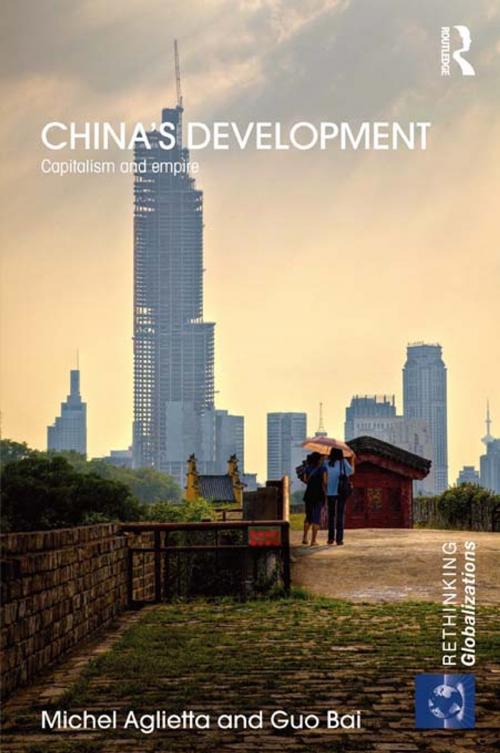| Author: | Michel Aglietta, Guo Bai | ISBN: | 9781136200458 |
| Publisher: | Taylor and Francis | Publication: | November 12, 2012 |
| Imprint: | Routledge | Language: | English |
| Author: | Michel Aglietta, Guo Bai |
| ISBN: | 9781136200458 |
| Publisher: | Taylor and Francis |
| Publication: | November 12, 2012 |
| Imprint: | Routledge |
| Language: | English |
China is entering a phase where deep structural changes will arise throughout society. These multi-fold processes will be intertwined in a globalized world, impacted by the transformation of capitalism in the aftermath of the financial crisis and under the threat of severe environmental damage.
Focussing on sustainability, this book explores the future of China in light of the successful reforms undertaken in the last thirty years. It combines Chinese economic history and up-to-date macroeconomic theory in order to show how economic transformations and institutional changes are intertwined in developing capitalism under state sovereignty. The book is divided into three parts:
-
Part 1 analyses the structural changes ahead, drawing on the knowledge of the causes of the demise of imperial China and of the social disruptions due to political warfare in the 20th century.
Part 2 examines the reasons why the last thirty years of reform were successful and why the present growth regime will undergo a dramatic mutation in future decades.
Part 3 seeks to address the question: what type of political economy can support the purpose of achieving "harmonious society"?
China's Development will be of interest to students and scholars of Chinese economics, politics, history and development.
China is entering a phase where deep structural changes will arise throughout society. These multi-fold processes will be intertwined in a globalized world, impacted by the transformation of capitalism in the aftermath of the financial crisis and under the threat of severe environmental damage.
Focussing on sustainability, this book explores the future of China in light of the successful reforms undertaken in the last thirty years. It combines Chinese economic history and up-to-date macroeconomic theory in order to show how economic transformations and institutional changes are intertwined in developing capitalism under state sovereignty. The book is divided into three parts:
-
Part 1 analyses the structural changes ahead, drawing on the knowledge of the causes of the demise of imperial China and of the social disruptions due to political warfare in the 20th century.
Part 2 examines the reasons why the last thirty years of reform were successful and why the present growth regime will undergo a dramatic mutation in future decades.
Part 3 seeks to address the question: what type of political economy can support the purpose of achieving "harmonious society"?
China's Development will be of interest to students and scholars of Chinese economics, politics, history and development.















